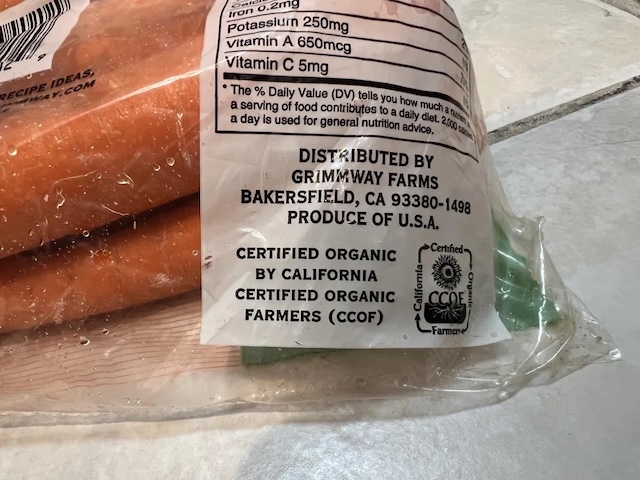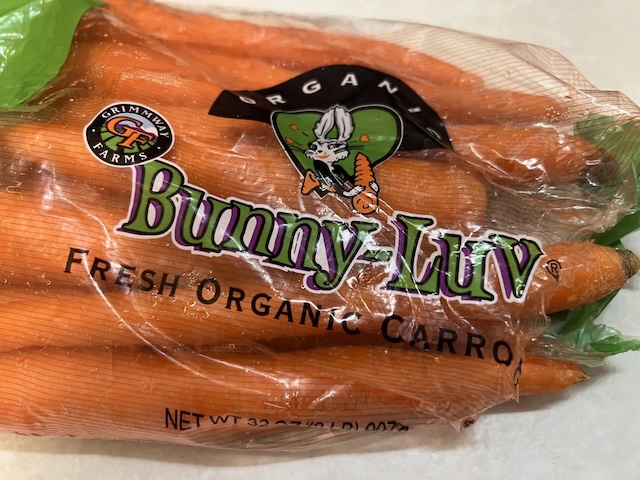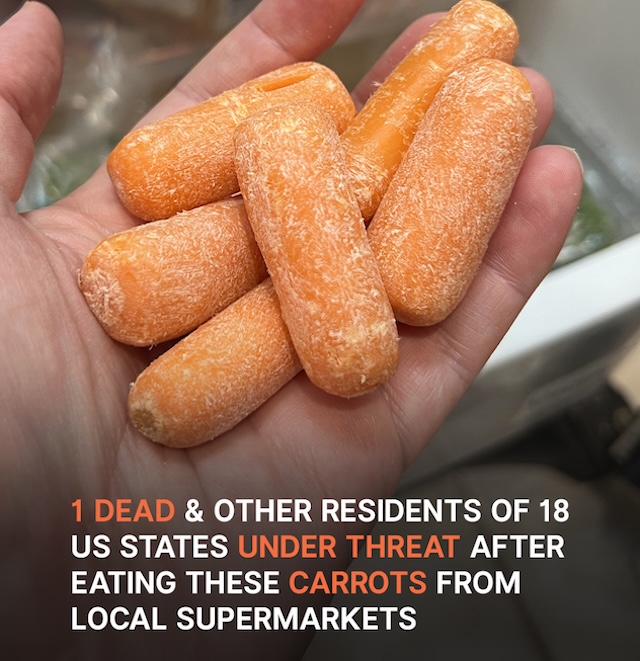A new E. coli outbreak in the United States has been linked to organic carrots, sparking concern across 18 states. The Centers for Disease Control and Prevention (CDC) and the Food and Drug Administration (FDA) have issued warnings, sharing crucial details about affected products, recalled brands, and prevention tips to protect public health.
Recalled Products: Organic Carrots from Grimmway Farms
Grimmway Farms, a prominent supplier of organic carrots, has issued a recall for both whole and baby carrots distributed under multiple well-known brands. While the recall was initiated on November 16, the CDC warns that some of these products may still be in consumers’ homes.
Recalled Brands
The following brands are part of the recall:
- 365
- Bunny Luv
- Cal-Organic
- Compliments
- Full Circle
- Good & Gather
- GreenWise
- Marketside
- Nature’s Promise
- O-Organic
- President’s Choice
- Raley’s
- Simple Truth
- Sprouts
- Trader Joe’s
- Wegmans
- Wholesome Pantry

Dates of Concern
- Baby Organic Carrots: Best-if-used-by dates from September 11 to November 12.
- Whole Organic Carrots: Sold between August 14 and October 23 without specific expiration dates.
Consumers are urged to check their refrigerators and discard or return any affected carrots to the store. Businesses are also advised to sanitize surfaces that may have come into contact with the recalled items.
States and Cases Impacted
The outbreak has affected 18 states, with 39 reported illnesses, 15 hospitalizations, and one death. The most affected states include Minnesota, New York, and Washington, while others, such as Texas and California, show more scattered cases. The last reported illness occurred on October 28.
Affected States
- Arkansas
- California
- Colorado
- Massachusetts
- Michigan
- Minnesota
- Missouri
- North Carolina
- New Jersey
- New York
- Ohio
- Oregon
- Pennsylvania
- South Carolina
- Texas
- Virginia
- Washington
- Wyoming
Interviews with those infected revealed that 96% of individuals had consumed carrots prior to falling ill, linking the outbreak to the recalled products.

The Dangerous Strain: E. Coli O121
The outbreak strain, E. coli O121, produces Shiga toxin, a dangerous compound that can lead to severe infections. Vulnerable populations, such as young children, the elderly, and those with compromised immune systems, face the greatest risks.
Symptoms and Complications
Common symptoms include:
- Severe stomach cramps
- Diarrhea (often bloody)
- Fever
- Nausea and vomiting
Severe cases may lead to Hemolytic Uremic Syndrome (HUS), a condition that causes kidney failure and can be fatal. Symptoms typically appear three to four days after exposure, with most individuals recovering within a week. Those experiencing dehydration, persistent diarrhea, or a fever exceeding 102°F should seek immediate medical care.

E. Coli Overview: A Common Yet Deadly Bacteria
- coli bacteria are naturally found in various environments, including food, water, and the intestines of humans and animals. While many strains are harmless, certain ones can cause life-threatening infections through contaminated food, water, or direct contact.
- Children under five
- Adults over 65
- International travelers
- People with weakened immune systems
Prevention Tips from the CDC
The CDC has emphasized the importance of proper food handling and hygiene to reduce the risk of E. coli and other foodborne illnesses.
Food Safety Guidelines
- Handwashing: Wash hands with soap for at least 20 seconds before, during, and after food preparation.
- Kitchen Hygiene: Clean surfaces, utensils, and cutting boards with hot, soapy water.
- Produce Cleaning: Rinse fresh fruits and vegetables under running water.
- Prevent Cross-Contamination: Use separate cutting boards for raw and cooked foods. Store raw ingredients in sealed containers to avoid leakage.
- Proper Cooking Temperatures: Use a food thermometer to ensure:
145°F for whole cuts of meat
160°F for ground meats
165°F for poultry and leftovers
- Refrigeration: Keep perishables refrigerated below 40°F and promptly store leftovers within two hours (or one hour in hot conditions).
Water Safety Tips
- Treat water during camping, hiking, or international travel.
- Avoid swallowing water while swimming in natural or public pools.
- Only consume pasteurized milk, juice, and dairy products.

Public Health Efforts and Next Steps
Health officials continue to monitor the situation, encouraging businesses and consumers to follow all safety recommendations. Public awareness and adherence to prevention tips can significantly reduce the risk of further infections.
By remaining vigilant and proactive, individuals can protect themselves and their loved ones from this serious outbreak. Stay informed, and prioritize food safety to minimize risks.



